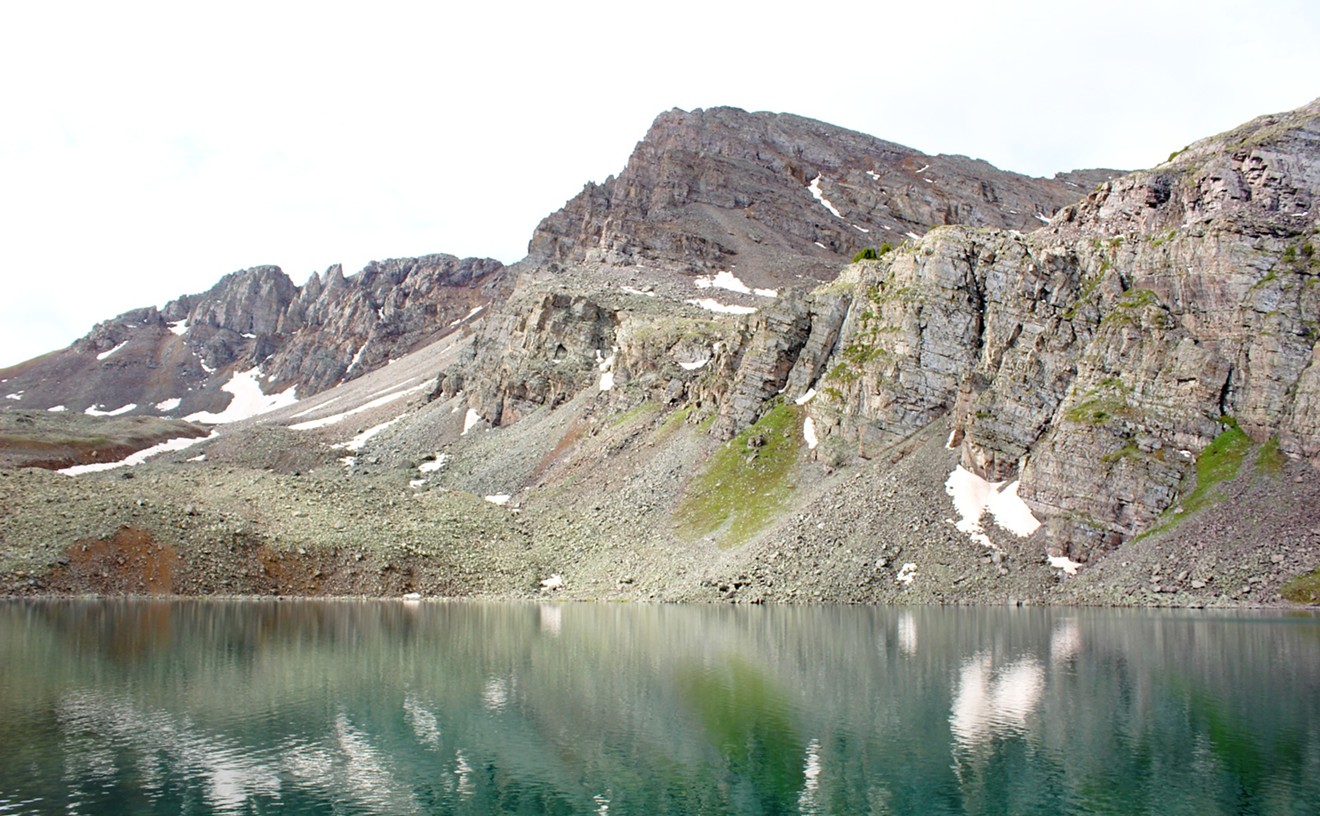Captain Soule not only stood up, but he lost his life because of it. Soule was one of the regular officers assigned to accompany Chivington and his men out of Fort Lyons, and when he learned of Chivington's plans to kill the tribal members who thought they were camped under the federal government's protection, he refused to take part in the massacre. In fact, he wrote a letter to his former commander, Major Edward Wynkoop, describing in graphic detail the horrors of what he had seen that day -- and then repeated his observations in testimony before Congress. As thanks for his efforts, in April 1865, when he was serving as Acting Provost Marshal of Denver, Soule was assassinated on the streets of the young city. In "A Marked Man," Hutchison writes:
Two months it's been since Soule testified -- told the horrors he'd seen at Sand Creek to the panel convened by Colonel Moonlight. A massacre, Soule called it, Chivington's rubbing out of Black Kettle's village, though some in Denver City said we're at war, which made it a battle, and some called Soule a damn traitor because he kept his men above the fray.
But Congress concurred with Soule's view. At the end of three investigations, in 1865 the federal government officially labeled the incident at Sand Creek a massacre -- 142 years before the Sand Creek National Historic Site was dedicated on the plains northeast of Eads.
Two months from now, Colorado will mark the 150th anniversary of an event no one wants to celebrate -- but one that should never be forgotten. After ceremonies at the massacre site, native runners will head northeast in the fifteenth annual Healing Run, along the route that Chivington's troops took after the slaughter, carrying trophies -- including body parts and several captive children -- back for display in Denver. And there, on December 3, the runners will join other tribal representatives, Colorado officials, historians and members of the Sand Creek Massacre Commission appointed by Hickenlooper on the steps of the State Capitol, to remember the Sand Creek Massacre.
Hutchison should be there, to read from his poem about Silas Soule.
Hutchison was on those steps last week, when Governor John Hickenlooper announced that the Denver native had become Colorado's eighth poet laureate. "Poetry speaks to every aspect of our lives," Hutchison said then. "People turn to poetry when they fall in love or when they fall out of love. When someone dies, people turn to poetry." When many people die.
"Joe's poetry is beautiful," Hickenlooper said in making the announcement. "It goes from the sublime and the very intellectual to the very simple and direct." Hutchison has written fifteen collections of poems, including Marked Men; he doesn't know if his work on Sand Creek played a role in his being chosen poet laureate. "It took me a long time, because I'm not a historian," he says of the narrative poem. "I wanted to make it as rich in history as I could."
Another poet nominated Hutchison; he learned he'd made the short list just two days after he was named interim director of arts and culture at University College at the University of Denver, where he's taught writing for a dozen years. DU, too, has been thinking about Sand Creek a lot these days; 150 years ago, the forerunner of the school was founded by Chivington and then-territorial governor John Evans, who'd earlier founded Northwestern University north of Chicago. At the urging of Native American students, Northwestern appointed a commission to study Evans's role in the Sand Creek Massacre and released a hundred-plus-page report this summer. DU has been studying Evans's legacy, as well, but the work has gone slowly; that report is now supposed to be released next month.
Hutchison's poem about Silas Soule would make a fine introduction to his colleague's work.
Colorado's previous poet laureate was Dave Mason, a Colorado College professor who took on another trying time in his narrative poem "Ludlow." But while both the style and the subject -- the Ludlow Massacre, in which twenty striking miners and their family members were killed a hundred years ago -- are difficult, Hutchison credits Mason with helping to promote poetry during his four-year term; as he traveled the state, Mason would not just share that sorry part of Colorado history, but share the stage with local poets. And there are many of them, with their own stories to tell.
"We're in the middle of a renaissance here," says Hutchison. "We have not just more poets, but more high-quality, serious poetry going on than I ever remember seeing before."
I suggest you look into a gold-panner's eyes, he said. Examine the rapture there as he pores over the sand for glints. Listen to some booster touting the profits to be made from statehood. Watch the orator's fist quiver above his head as he calls on God to fulfill his own killing ambition.
Learn more about the Sand Creek Massacre Commemoration Commission here. Read more about Joe Hutchison here.
Send tips to [email protected].











